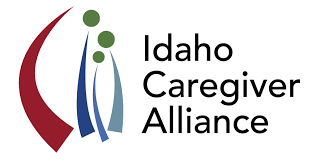It begins with a diagnosis, an undetermined future. Families come together and fall into their roles as they help their loved ones through the treatment process. At first, everyone is ready to help, but over time some family members step down from their duties to live their own lives. Often, one person is left to pick up the pieces, to provide care for the loved one who is sick. The family caregiver plans their life around the needs of their family member and takes them to all the appointments, treatments, and therapies. They are the ones healthcare professionals call when there is an issue, regardless of the time of day. Caregiving becomes part of their identity. Depending on the illness, caring for a loved one in this capacity could be months to years.
As time passes, the caregiver can experience a host of emotions – both towards the one they are caring for and the family members that are not helping to support them. However, nothing quite prepares a caregiver for the inevitable. The reality is that certain illnesses will end in loss. For a non-paid family caregiver, death can impact them in more ways than they expect. There is a sense of grief and relief. These opposing feelings are challenging to move through. It is okay to feel lost and uncertain of your identity as a person after caregiving, but, where do you go from here?
First, take a deep breath and understand that you will go through many emotions and struggles before you regain your identity. Sadness, anger, hopelessness, devastation, and guilt are all normal emotions to feel after the death of someone you have cared for. Remember, it can take some time for you to feel “normal” again. Sometimes people continue to feel these emotions up to two years after. An odd emotion that some people experience is a sense of relief, not only for their loved one to no longer be suffering, but also that their responsibilities as a caregiver are over and they are able to move on with their lives. While you may feel guilty about this emotion, it is OKAY to feel this way. You did your best to care for your family member and you should celebrate your commitment to them.
You have put your own life on hold to be a caregiver and now you don’t know what to do. Re-entering into the world as you and not “so-and-so’s” caregiver can be a bit daunting. Remember to take your time and move at your own pace. You may feel a sense of loneliness, especially if you were a caregiver to your spouse, and your family may want you to begin experiencing life again. Don’t let your new life overwhelm you and control your joy, but be cognizant of what you can handle.

